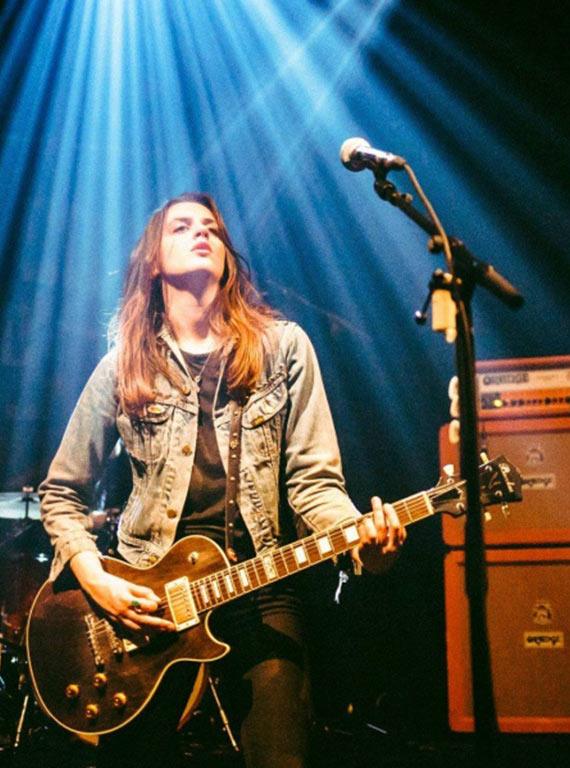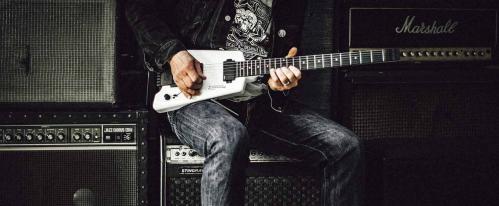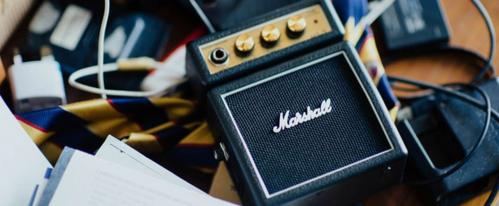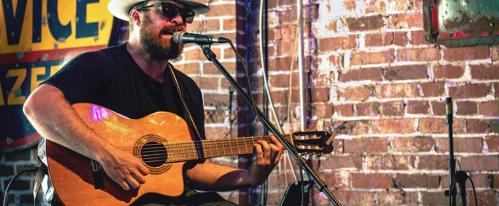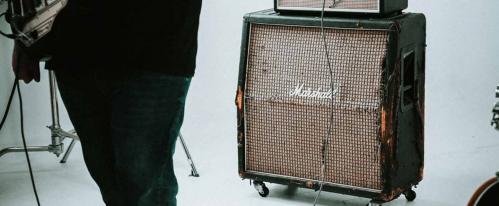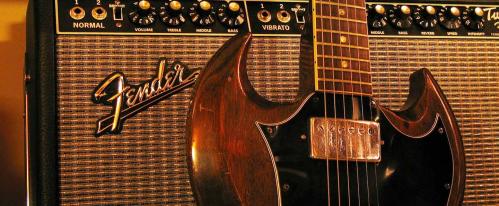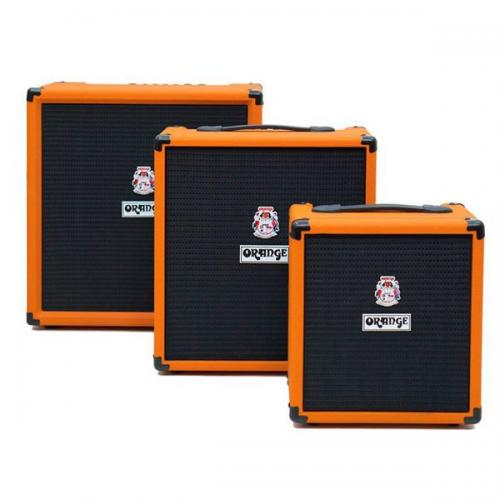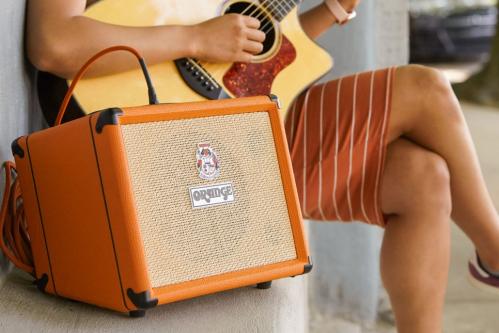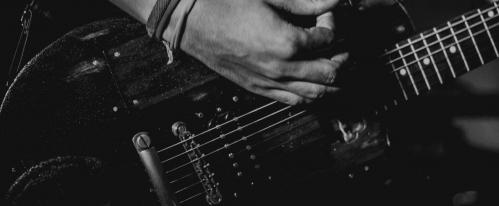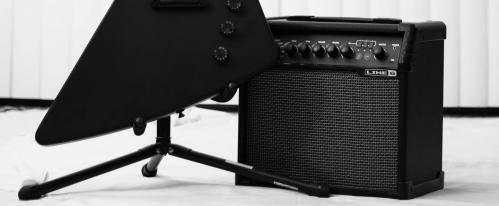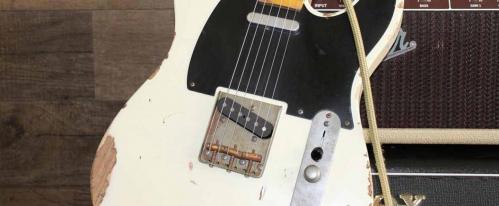The History of Orange Amps
Find out how the history of Orange amps has led to some of the finest tone monsters on the market today.
To most in London, the second of September 1968 was nothing more than a blustery day. Little did they know that, in a dingy basement shop in Old Compton Street, the first legendary British guitar amplifier was being created!
Orange was founded by Mr. Clifford Cooper, who remains at the helm to this day. A quiet and reserved man, and certainly not one for the megastar lifestyle, Cooper is probably the last man you would expect to be behind such a highly-acclaimed musical company. With just £300 borrowed from his father and armed with the enthusiasm of a young man of the time, Cooper had set up the shop selling a variety of musical instruments.
Because of his age and low-profile establishment, the majority of the large manufacturers of the time were more than a little reluctant to accept Cooper as a dealer. So, if he couldn't buy them in, the most logical thing was to build them in-house.
With a background in electrical engineering himself, he engaged a team of the best design engineers around who set about creating all-valve amplifiers just when the fine and well-established valve technology was being overtaken by transistor-based contraptions. This new wave of amplifiers were cheaper to produce, but could never capture the magical warmth and colour of the old valve setups.
Cooper had acquired a quantity of an orange-coloured vinyl, the material used to cover the wooden shell of amplifiers and cabinets, and it wasn't long before the shop was proudly displaying the very first amplifiers to carry the now famous livery. With that, Orange Amplification was born.
The thing was, these new peculiar-looking boxes sounded rather good, and the news of them was soon spreading like proverbial wildfire. So much so, in fact, that Orange was almost an overnight success. Before long, Orange was standard backline equipment for stages, studios and rehearsal rooms worldwide.
Shortly after this, the big acts of the time started snapping up the products for use as part of their usual set up. Fleetwood Mac were among the first famous Orange users in the UK, followed by Stevie Wonder in the States. Peter Green's Les Paul + Orange Amp combination in Fleetwood Mac was responsible for some of the most remarkable guitar sounds of the late sixties!
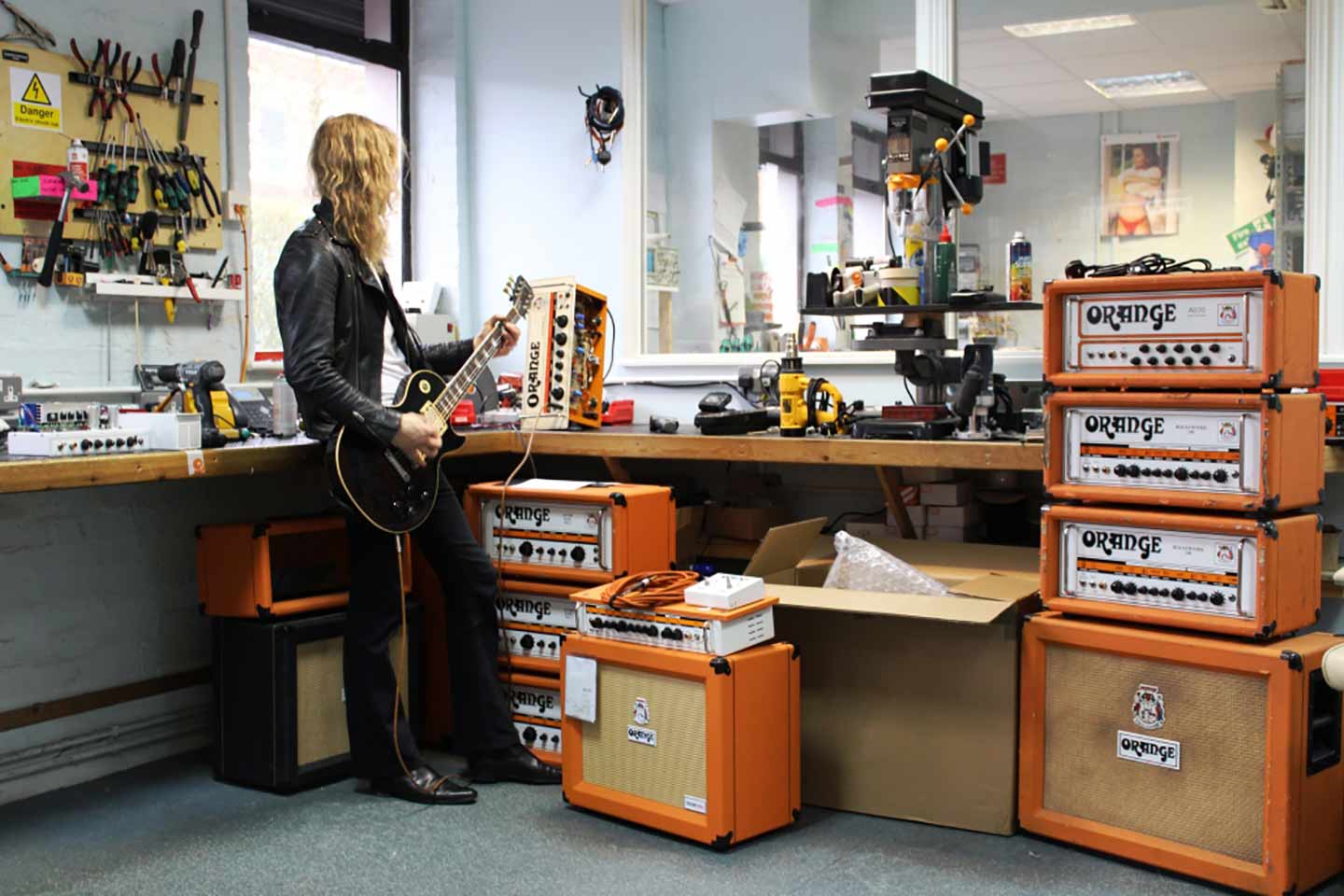
The Seventies was a time of big-budget international tours, with bands packing stadiums and festivals the world over. But, when these bands finally washed up on British shores, they found that there was simply nothing powerful enough to drive such big gigs. In stepped Orange, who set about on the construction of a ridiculously over-sized public address system, neatly packed into a fleet of bright orange lorries. Gigging in the UK meant being chased around by the men in Orange, who travelled the length and breadth of the country providing big sound for big acts. Bands such as Black Sabbath and Led Zeppelin were amongst the most famous Orange users. Jimmy Page still uses Orange amps today.
The town was well and truly painted, with Orange amps and cabs behind all the biggest names in contemporary music. Magazine covers, TV, posters, papers... there was simply no escaping the glare of the brand.
There was something very different going on in the Eighties: changes in the world economy meant that spending hit a low. Fashions changed, but more importantly, pop music changed it's face again. The synthesizer that we all knew and loved for it's odd and unpredictable noises became more and more sophisticated, until whole records could be created completely electronically. The popularity of disco, kick started a dance music movement that has lasted until today.
Very few rock bands survived, and most of those that did were American. The rising popularity of rack based amplifiers and effects left little room for all tube heads. Improved transistor technology allowed younger guitarists to save money by buying cheap combos. Orange were not prepared to lower standards and production was reduced to a trickle of amplifiers to those who truly believed in the quality, warmth and tone of well-built British valve technology.
In the early Nineties, people were again looking for a change in popular music. On the underground scene, bands resumed writing rock. These new bands finally broke through into the mainstream with grunge and brit-pop, bringing with them the valve amps they had spent their advances on. Oasis were one of the bands who turned to Orange when they needed great tone and great volume!
In 1997, Orange, seeing new potential in the guitar amplifier market, developed and launched the OTR™ system, which was the first major change to the design of the amplifiers that began all those years ago. It was an improvement that was loved by rock and blues musicians from the word go, and Orange was well and truly back on track.
Orange amplifiers now has distribution offices in the UK and USA and are represented by companies all over the world. As times have changed, so has Orange. With a new generation of employees driving the company forward, Orange is growing faster than ever!
1999 saw the development of the AD series amplifiers, 2001 the launch of the Crush series and in 2004 the Rockerverb series was unveiled to the world.
The noughties brought a new generation of rockers with renewed interest in valve amps and, naturally, Orange once again became one of the top choices, with bands such as the Arctic Monkeys and The Cribs using orange.
Today, Orange is doing better than ever, with a more varied selection of guitar gear than ever befor in the company's history: they make the Orange Crush series, possibly the best solid-state amps available today, with fully-analog signal path. And, on the other end of the spectrum, they still manufacture the popular Rockerverb series of valve amps, still one of the top choices for the professional rockers. Their range of small Terror valve amps was innovative when first launched and is still popular, offering valve quality at affordable prices.
And in 2015, Orange still manages to innovate, with their Bax Bangeetar EQ / Booster fx pedal, the first ever the company has made!
The new designs are fresh, innovative and retain the high standards of that first Orange amplifier built in 1968. Cliff Cooper's Orange is a company that has never lost it's ability to build the best amplifiers in the world!

